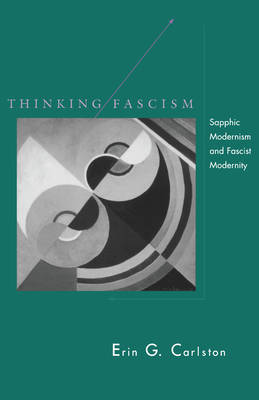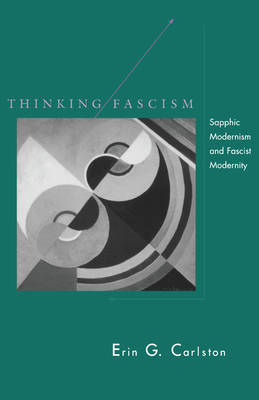
- Retrait gratuit dans votre magasin Club
- 7.000.000 titres dans notre catalogue
- Payer en toute sécurité
- Toujours un magasin près de chez vous
- Retrait gratuit dans votre magasin Club
- 7.000.0000 titres dans notre catalogue
- Payer en toute sécurité
- Toujours un magasin près de chez vous
Description
Thinking Fascism analyzes three works by women writers--Djuna Barnes's Nightwood (1936), Marguerite Yourcenar's Denier du rêve (1934), and Virginia Woolf's Three Guineas (1938)--that engage, directly or indirectly, with fascist politics and ideology. Through these analyses, the author explores the conjunction between fascism and other forms of modernity, and refines the discussion about the relationship between women intellectuals and the various aesthetic and ideological practices collected under the names of modernism and facism.
Until recently, much theoretical work on fascism has represented fascist thought as radically different from and inimical to non-fascist thought, and feminist criticism has further assumed that women intellectuals--especially the sexually marginal women sometimes grouped as the "Sapphic Modernists"--were necessarily antagonistic to fascist ideologies. In contrast, the author argues that Western intellectuals of both genders and all political persuasions were preoccupied in the 1930's with the commodification of culture and sexuality, the erasure of liberal bourgeois concepts of the individual and the work of art in mass society, and the failure of social institutions to provide transcendence and immediacy in the face of these transformations. By demonstrating that women writers like the Sapphic Modernists and conservative or fascist male modernists often articulated very similar conceptions of these problems, this book suggests that fascism cannot be posed as the absolute other of non- or even anti-fascist politico-cultural discourses in the interwar period.
Spécifications
Parties prenantes
- Auteur(s) :
- Editeur:
Contenu
- Nombre de pages :
- 232
- Langue:
- Anglais
Caractéristiques
- EAN:
- 9780804730884
- Date de parution :
- 01-03-98
- Format:
- Livre relié
- Format numérique:
- Genaaid
- Dimensions :
- 140 mm x 216 mm
- Poids :
- 430 g







